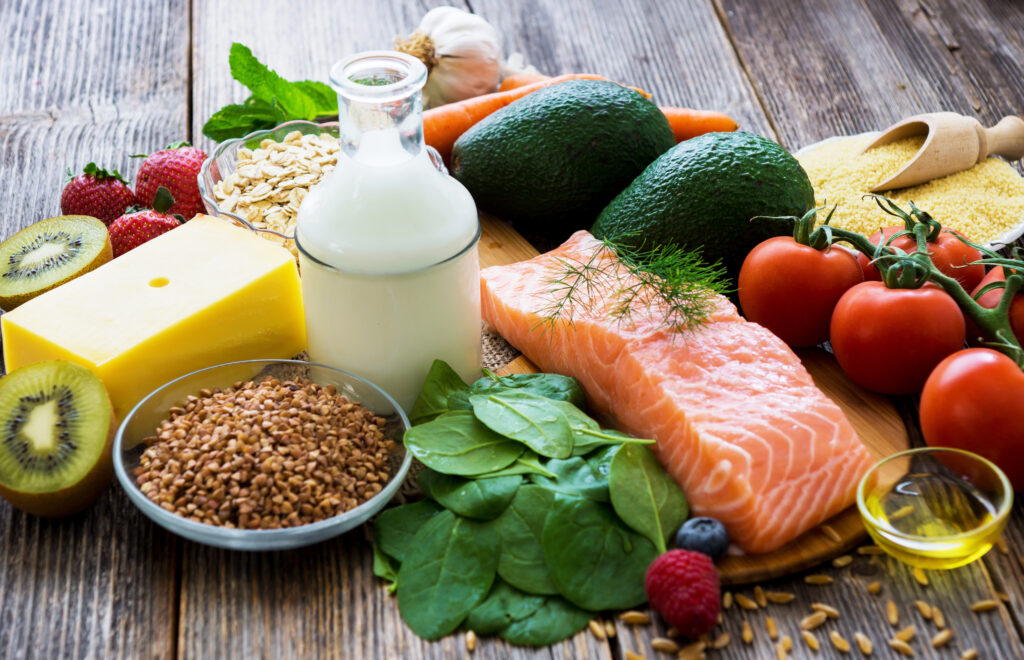
About 3.4 million Americans live with epilepsy, which is a central nervous system disorder that causes seizures. But many people can manage their symptoms with anti-seizure medication.
In addition to prescription medications, a diet may also help reduce the frequency and severity of seizures. A ketogenic diet helps control seizures in some people by providing 90% of their calories from fat.
1. Salmon
Salmon is rich in Omega-3 fatty acids, which are known to help reduce seizures and improve brain function. In addition, it is also a good source of protein and many other nutrients.
A sudden increase or decrease in blood sugar levels can cause seizures in some people. Therefore, it is important to eat foods that are low in sugar.
Caffeine can trigger seizures in some people with epilepsy, according to the Cleveland Clinic. However, more research is needed on this subject.
Grapefruit juice and pomegranate juice can interact with some anticonvulsant medications, such as carbamazepine and diazepam, and may reduce their effectiveness. Check the patient information leaflet for your medication before drinking these juices.
2. Spinach
Adding spinach to your diet will help you get more magnesium. Magnesium has been shown to reduce seizures and improve brain function. You can find it in many leafy green vegetables, but especially in quinoa and spinach.
Some anti-seizure medications can interfere with the body’s ability to absorb certain nutrients, including vitamin D, calcium, magnesium and folic acid. Talk to your doctor about ensuring you’re getting enough of these nutrients through a healthy, balanced diet.
A low glycemic index diet will also help you manage seizures. Foods with a low glycemic index are slowly released into the bloodstream, which means they won’t cause a sudden drop in your blood sugar levels that could trigger seizures.
3. Turmeric
While a lot of people know that turmeric is good for you, not everyone is aware that it can also help to prevent seizures. That’s because it contains a compound called curcumin, which has powerful anti-inflammatory and antioxidant properties.
Research shows that curcumin can help reduce the frequency and severity of seizures in those who have epilepsy. It does this by reducing inflammation and promoting the growth of brain cells. In addition, it can also reduce oxidative stress that can cause damage to the brain. A recent study also found that a compound in turmeric known as curcumol may help treat seizures by influencing the levels of GABA, a neurotransmitter.
4. Nuts
Although the term nuts is sometimes used to describe a group of foods that don’t qualify as true nuts, the Cleveland Clinic states that nut consumption can decrease seizures. It is important to avoid products with added salt, sugar and artificial sweeteners as these can increase the chances of a seizure. Also, be aware that some juices (such as grapefruit and pomegranate) can interact with certain anti-seizure medications, so check your patient information leaflet.
Some people with epilepsy have low magnesium levels, and walnuts are a great source of this mineral. However, there is no evidence that any specific diet can reduce seizures on its own.
5. Almonds
Almonds are rich in protein, healthy types of fats, vitamin E, magnesium, and fiber. Studies have found that they can help reduce seizures and prevent the onset of new ones, making them a key food for seizure management.
They also provide antioxidants, which can help combat oxidative stress that may lead to seizures and other health conditions. You can eat them raw, in the form of almond butter, or sprinkle a handful on your breakfast cereal or oatmeal.
Avoid high-glycemic foods, which can cause spikes in blood sugar and increase the risk of seizures. This includes pizza, soda, white bread, cake, and certain fruits and vegetables.
6. Dark Chocolate
Food is a vital part of life and a great source of energy. However, eating the wrong foods can trigger seizures in people with epilepsy.
Some foods and drinks like chocolate, high-sugar drinks, alcohol and stimulants can affect how well anti-epileptic medication works. They can also cause a sudden drop in blood sugar and trigger a seizure in some people.
Certain diets can decrease the frequency of seizures. One example is the ketogenic diet, which has a higher ratio of fats to carbohydrates. This type of diet can help reduce seizures in adults and children with poorly controlled epilepsy. Talk to your doctor before trying a new diet.





